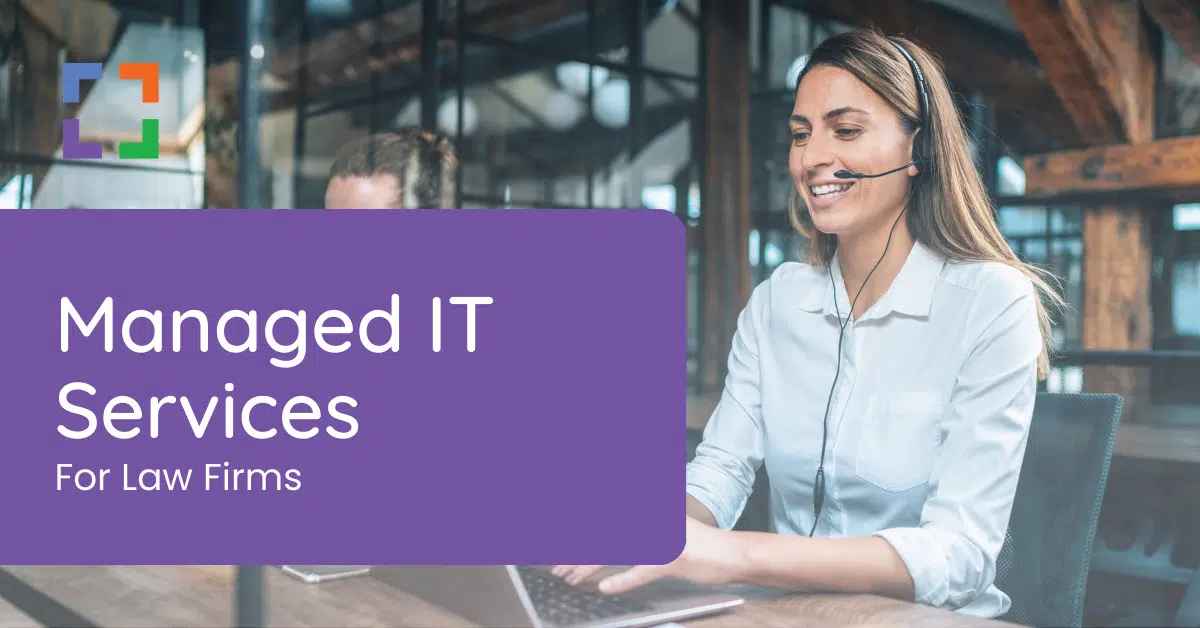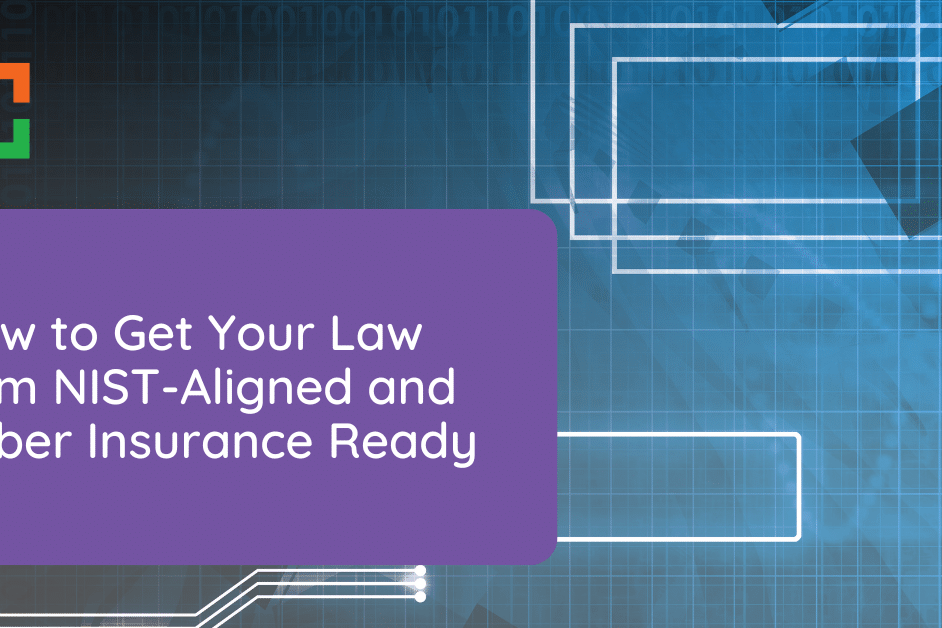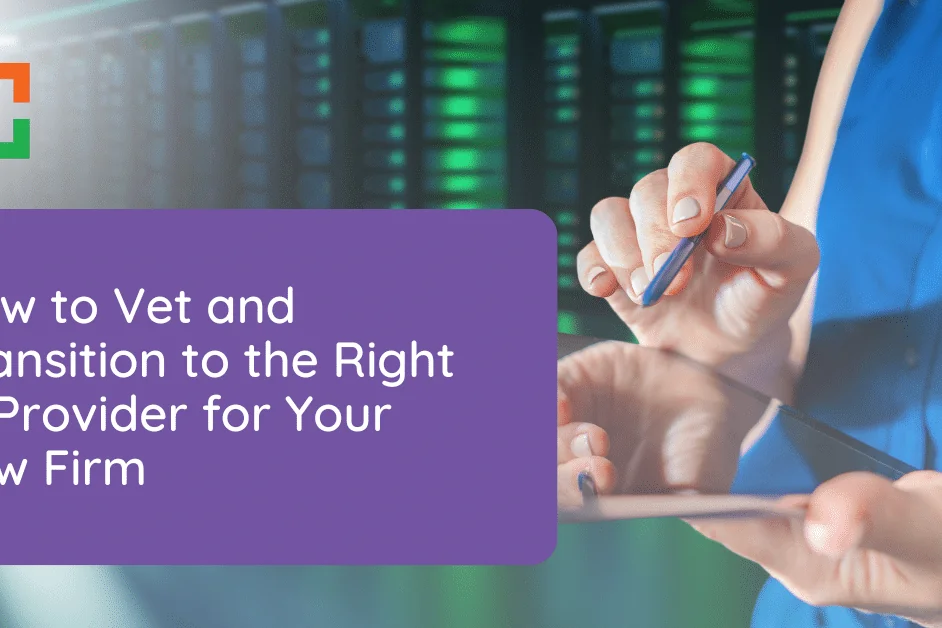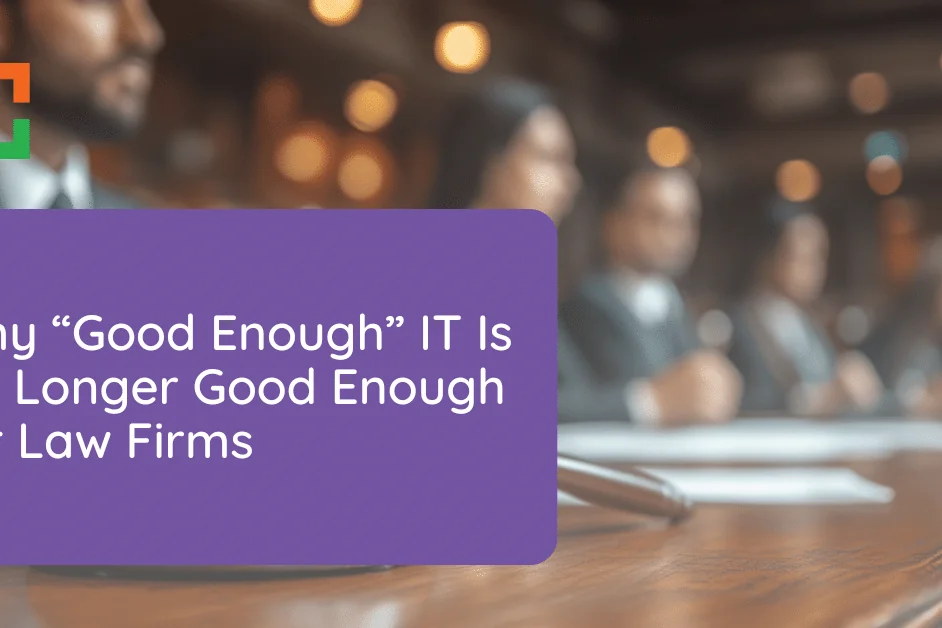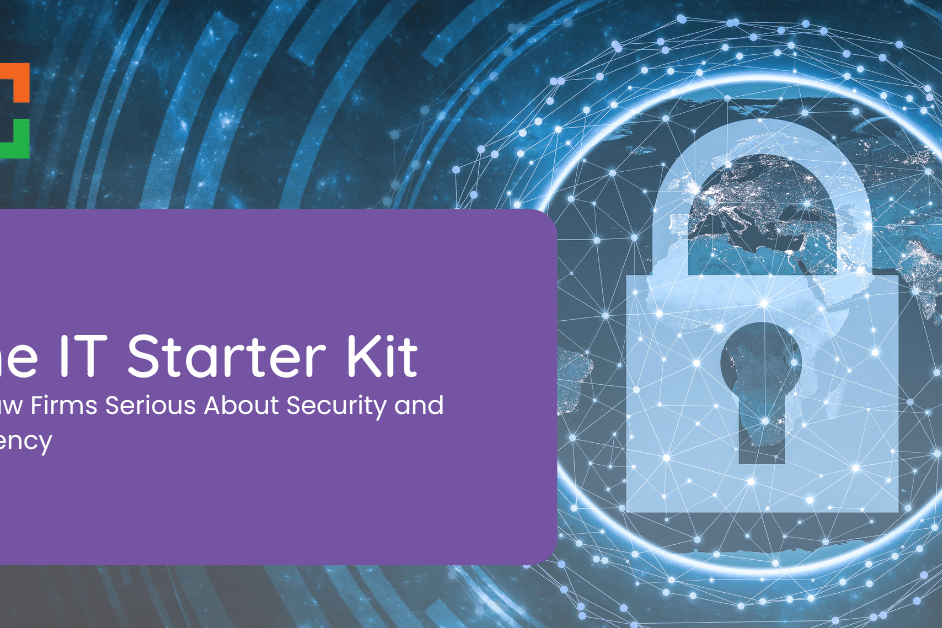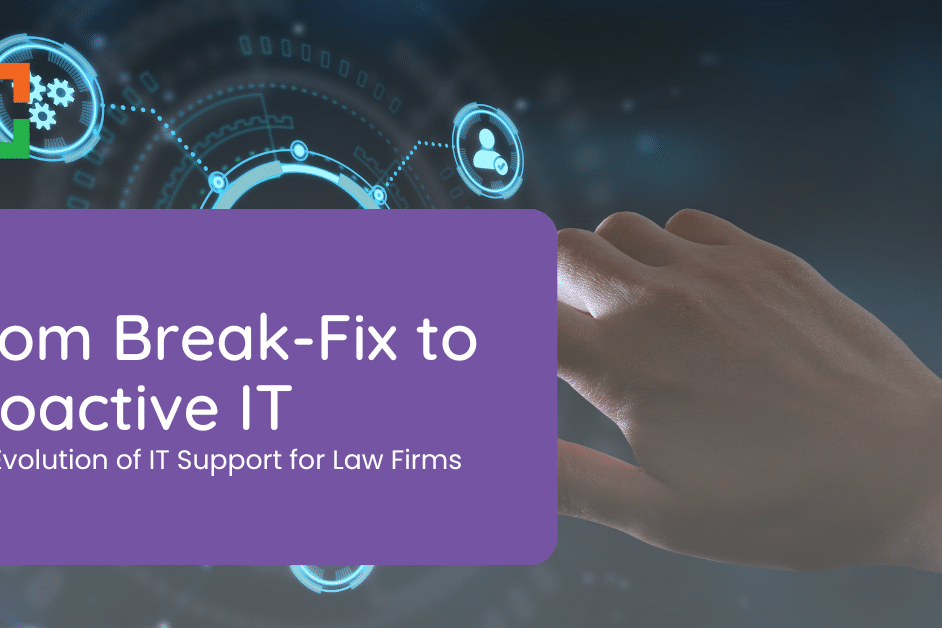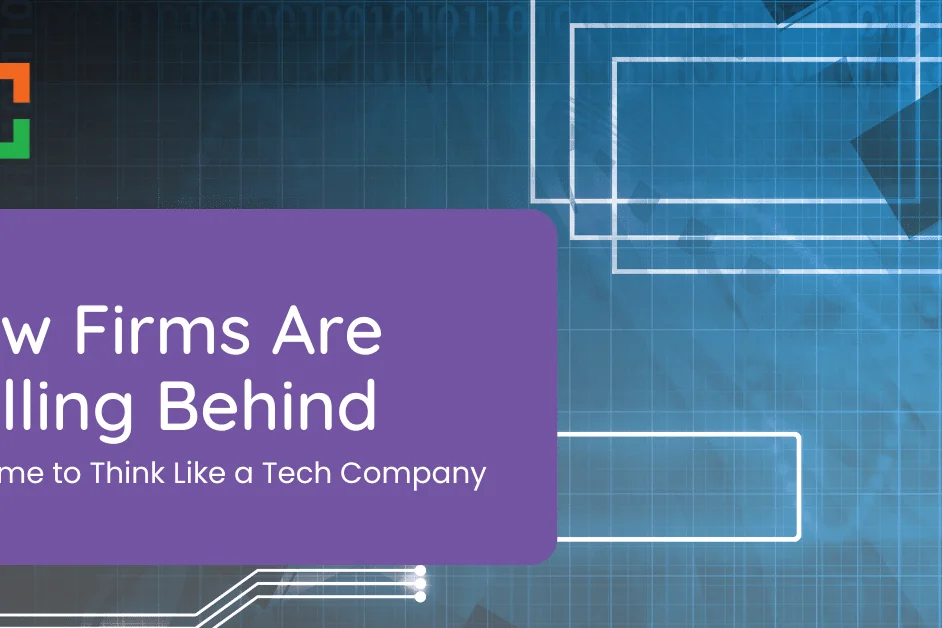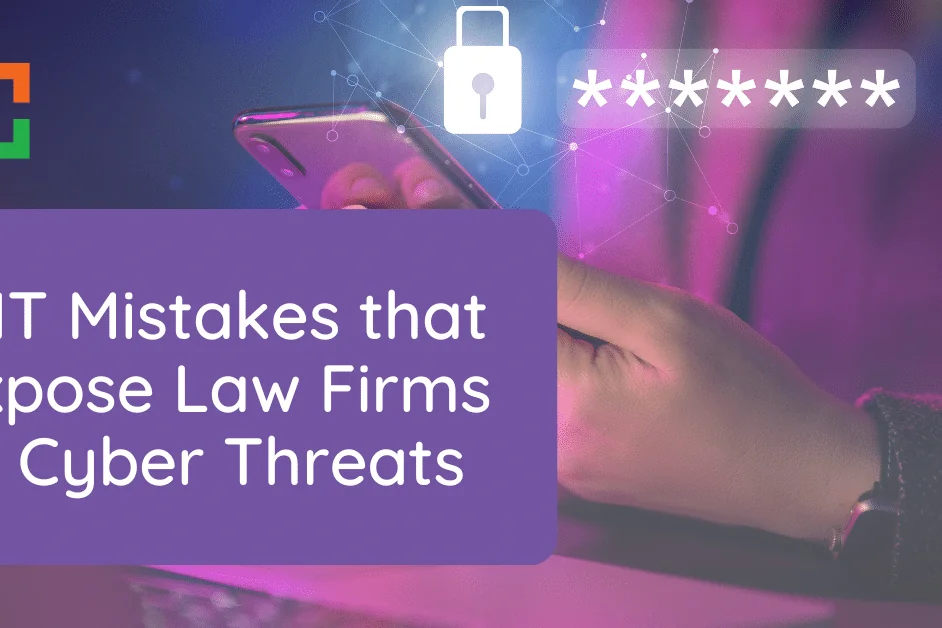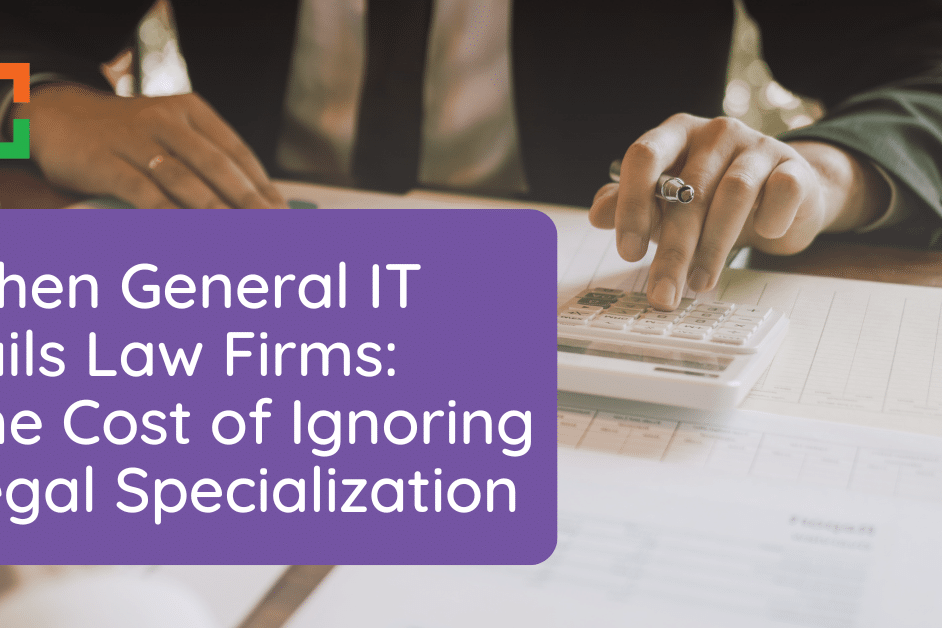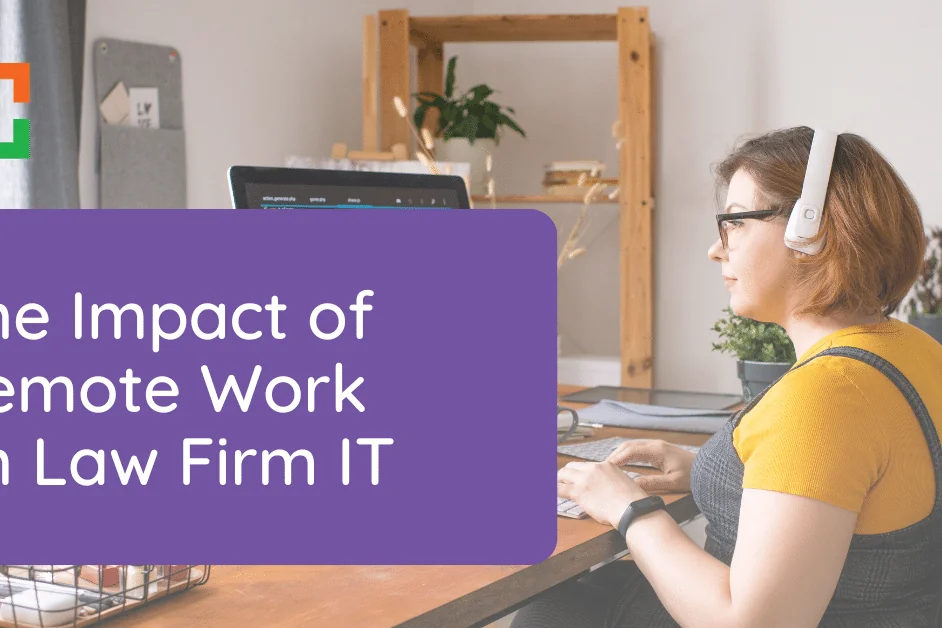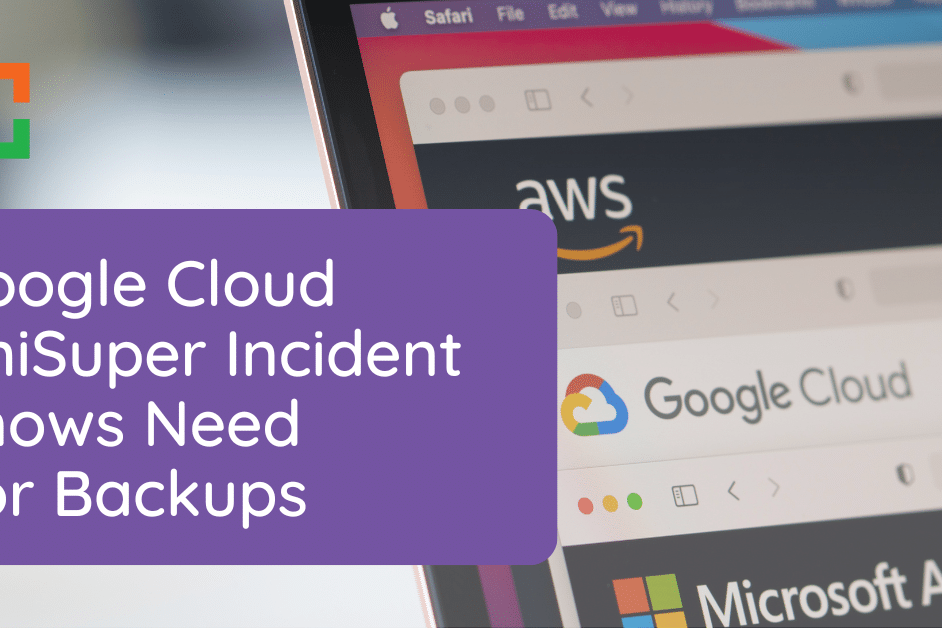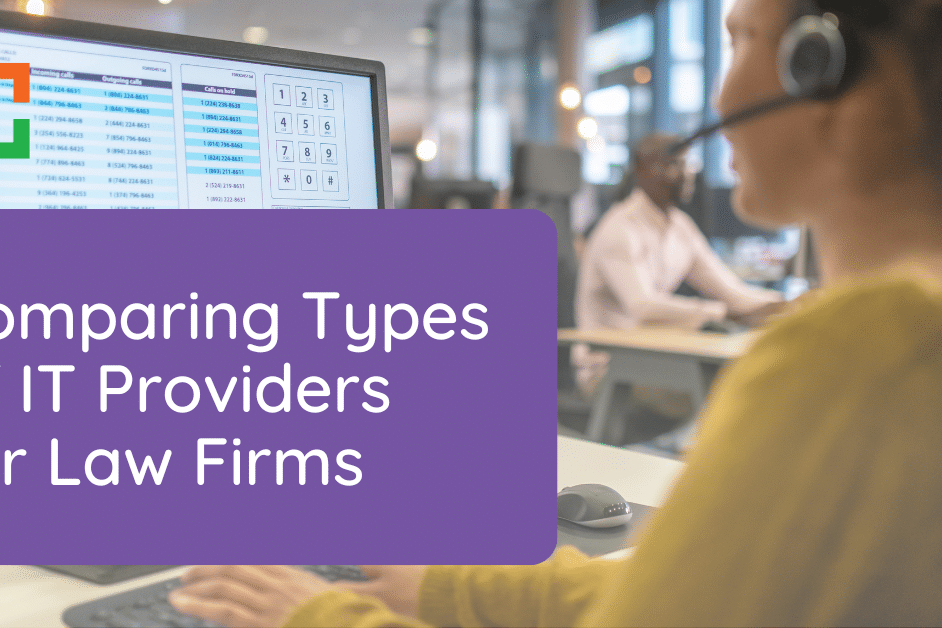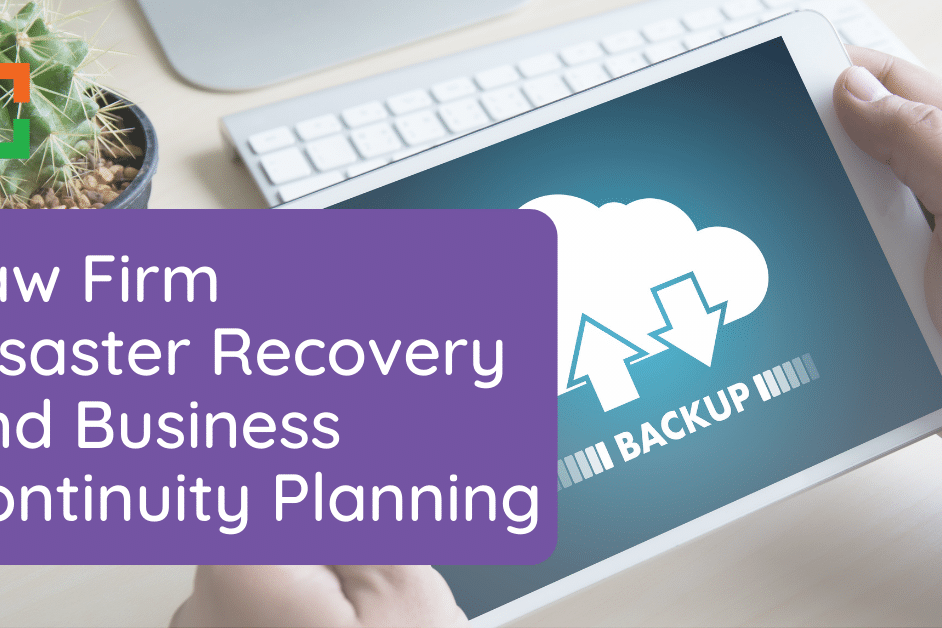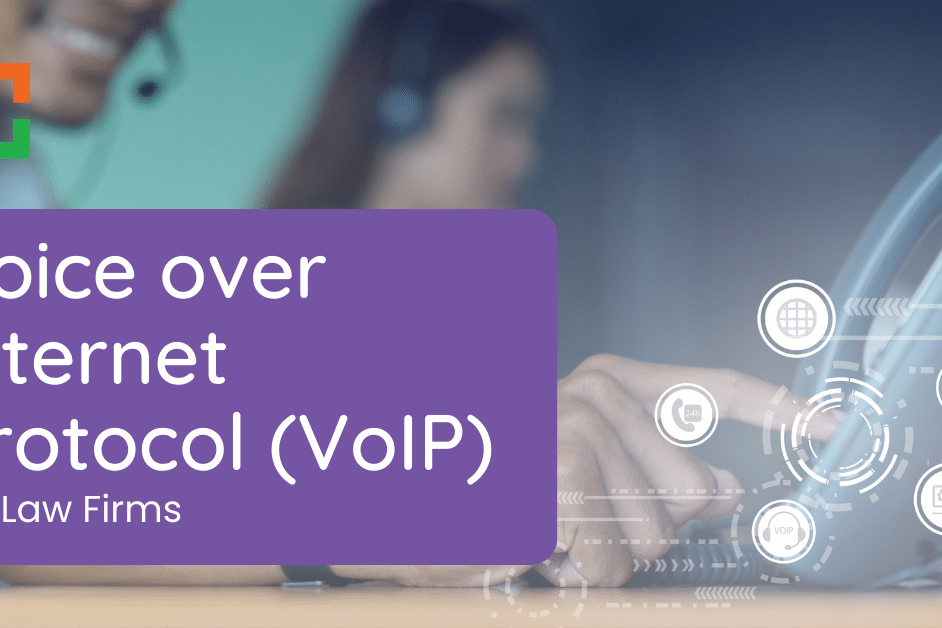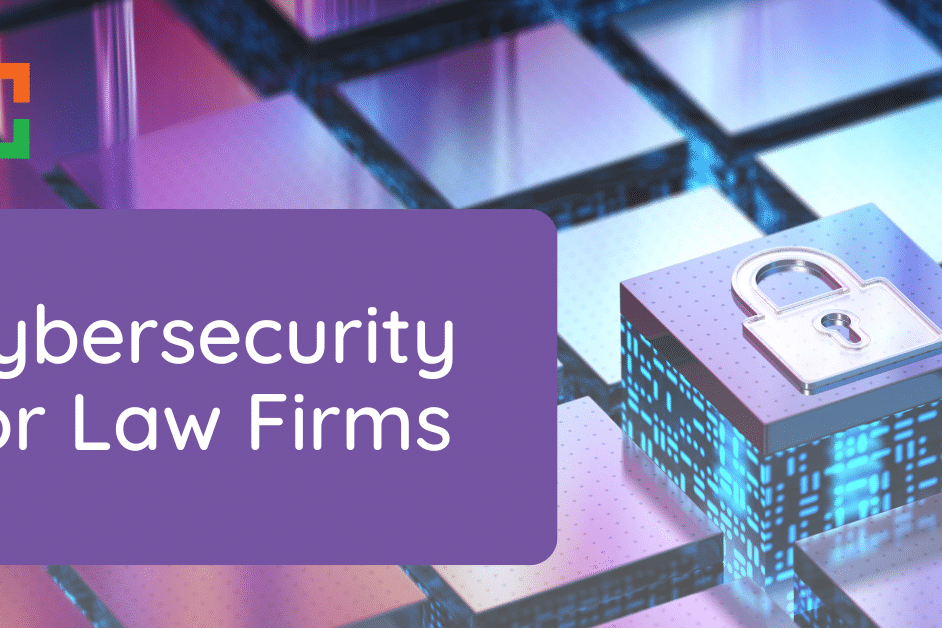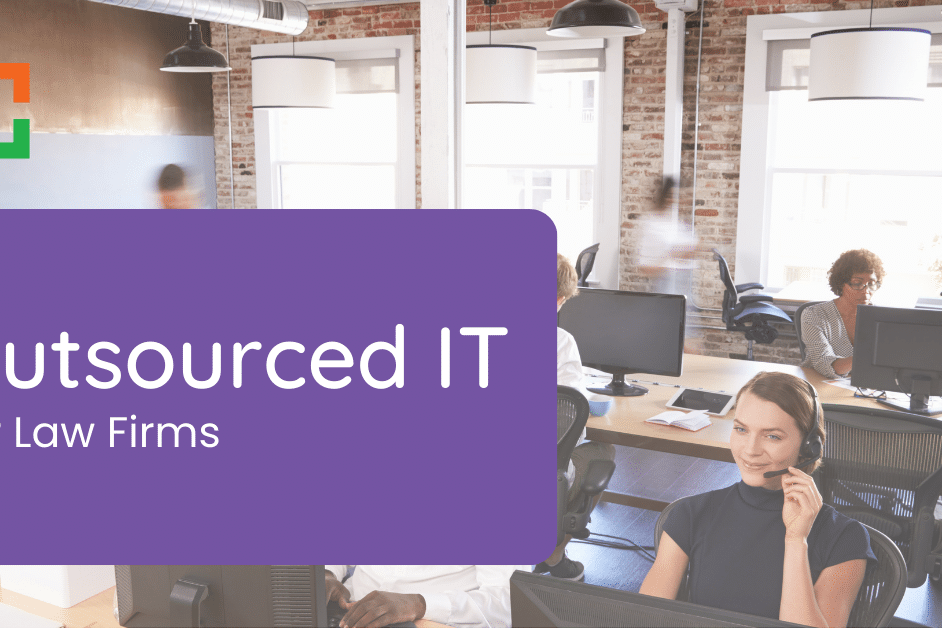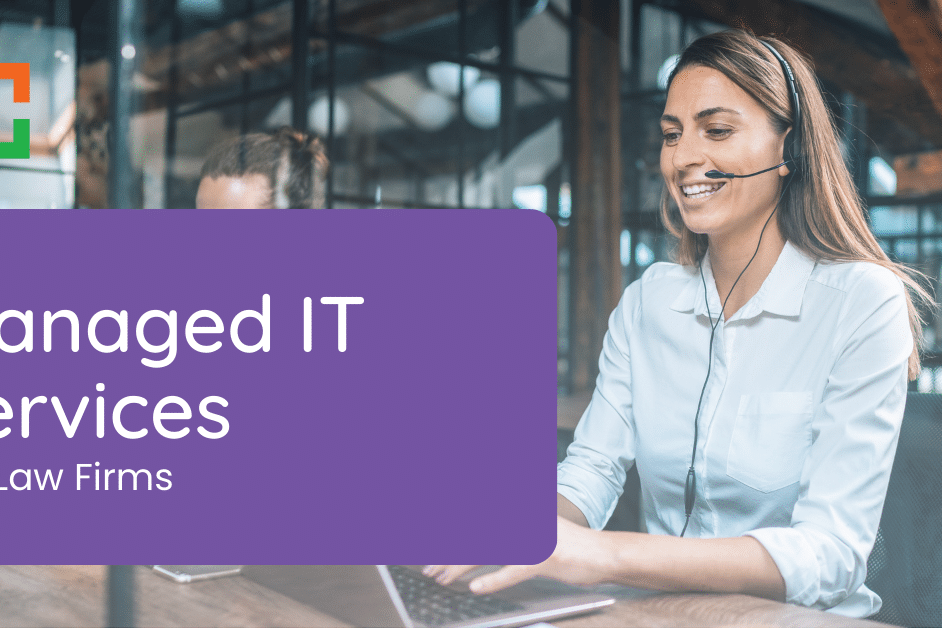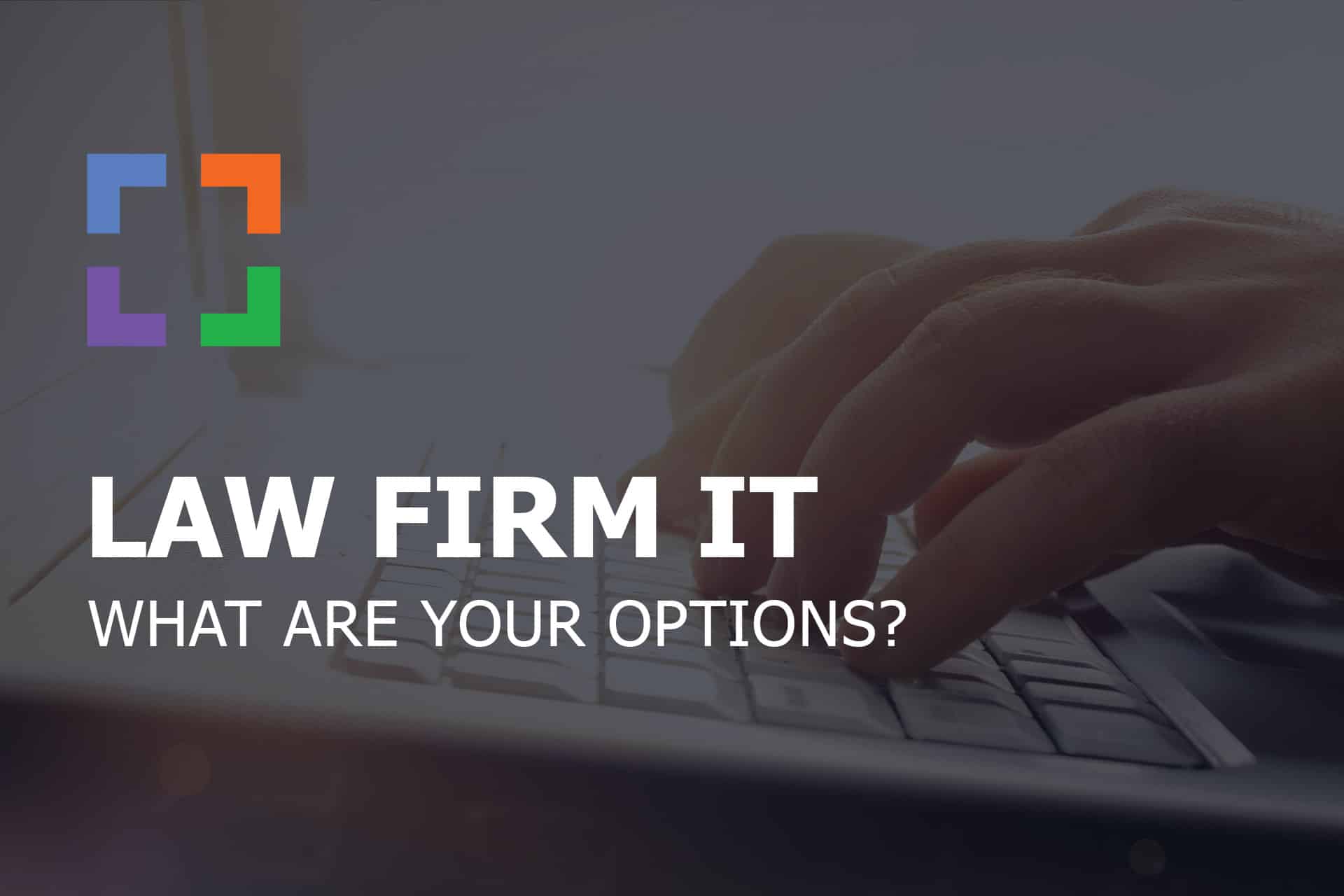Types of IT Services for Law Firms
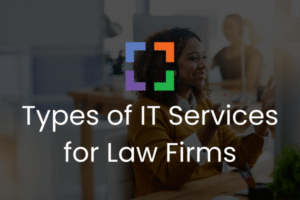
It compares various IT service models—ranging from independent consultants to specialized managed IT providers—and outlines their advantages and disadvantages.
A key focus is the essential legal software that IT providers must support, assisting law firms in choosing the right IT partner to enhance efficiency and success in their operations.
By taking the time to evaluate types of IT services, you take a step toward better efficiency and success. Just remember — focusing on legal-centric support will prove to be the best option in the long run.
Introduction to Types of IT Services
The intersection of law and technology is an evolving frontier, where the right tools and support can significantly influence a law firm’s success. In this digital era, Information Technology (IT) services have become integral to the legal industry, not just for operational efficiency but as a strategic asset.
IT services for law firms encompass a wide range of solutions, from cybersecurity measures protecting sensitive client data to cloud services that enable remote work and case management software that streamlines operations. Each of these services plays a vital role in ensuring law firms can meet the demands of their clients and the legal system efficiently and securely.
As law firms navigate through the myriad of options, understanding the types of IT services available and how they align with legal-specific needs is crucial.
This includes recognizing the importance of specialized IT support tailored to handle the unique challenges and requirements of the legal field. With the right IT infrastructure, law firms can not only safeguard their data but also enhance their service delivery, ultimately leading to better outcomes for their clients and a competitive edge in the legal marketplace.
This broad overview sets the stage for a closer look at how technology is integrated into legal practices, highlighting the need for law firms to adopt IT services that resonate with their specific operational and strategic goals.
Related – Managed IT Services for Law Firms: Outsourcing your IT needs allows your firm to better focus on legal-centric work. Learn how.
Why Legal-Centric IT Support Matters
The legal industry faces unique challenges that demand specialized solutions.
Legal-centric IT support is not merely a preference but a necessity for law firms striving for excellence in a competitive landscape. This necessity stems from the specific needs, ethical obligations, and operational dynamics of legal practices.
Here’s why legal-centric IT support stands out as crucial for law firms:
Tailored Solutions for Legal Workflows
Legal workflows are complex, often involving intricate processes for case management, document handling, and client communication.
Standard IT services might offer a one-size-fits-all solution that falls short in addressing the nuanced requirements of legal workflows. Legal-centric IT support, conversely, provides tailored solutions that seamlessly integrate with these specialized workflows, enhancing efficiency and productivity.
Compliance and Data Security
Law firms are custodians of highly sensitive client information, bound by strict regulatory requirements regarding data protection and privacy.
The consequences of data breaches extend beyond financial loss to include reputational damage and legal liabilities.
Legal-centric IT services are equipped with an in-depth understanding of these compliance requirements and are adept at implementing robust security measures to protect sensitive data against cyber threats, ensuring that law firms meet their ethical and legal obligations.
Familiarity with Legal Software and Tools
The legal industry utilizes specific software and tools that are essential for daily operations, such as case management systems, e-discovery platforms, and legal research databases.
IT support that specializes in the legal sector brings valuable expertise in deploying, managing, and troubleshooting these tools, ensuring that law firms can leverage their full potential to streamline operations and improve service delivery.
Proactive Risk Management
Legal-centric IT services go beyond reactive support to offer proactive risk management, identifying and mitigating potential IT issues before they escalate into problems that could disrupt a firm’s operations.
This proactive approach is vital in a field where downtime can result in significant financial losses and affect case outcomes.
Customized Training and Support
Adopting new technologies can be challenging, and law firms require customized training programs to bring their staff up to speed.
Legal-centric IT providers understand the unique culture and learning needs of law firms, offering tailored training and support that facilitate smooth technology adoption and minimize disruption to daily operations.
Strategic IT Planning Aligned with Firm Goals
Legal-centric IT support contributes to strategic planning, helping law firms align their IT infrastructure with long-term business goals.
This strategic alignment ensures that technology investments not only address current needs but also position the firm for future growth and success.
In conclusion, legal-centric IT support is indispensable for law firms.
It ensures that technology solutions are not just implemented but are integrated in a way that complements the unique needs of the legal profession.
By partnering with IT providers who understand the intricacies of law practice, firms can achieve operational excellence, safeguard client information, and stay ahead in the evolving landscape of legal services.
Would You Rather: Serve Clients or Manage IT?
Use Uptime Practice Next for:
- Unlimited IT Support
- Legal Software Consultation
- Cloud Storage
- Security Protection
- Data Backups
- and More!
Types of IT Services for Law Firms
For law firms navigating the complexities of modern technology, understanding the spectrum of IT services available is critical.
These services range from foundational support to specialized solutions, each with distinct benefits tailored to meet the unique demands of legal practices.
Below, we explore the various types of IT services that law firms can leverage to enhance their operations, security, and client service.
In-House IT Support
Why In-House is Usually a Bad Idea: On the surface, it might seem cost-effective to hire an in-house IT professional—let's say, for around $70,000. However, this approach often falls short due to limitations in breadth of knowledge and availability.
- Pros: Direct control over IT activities; immediate access to IT support.
- Cons: One person can only do so much. They take vacations, get sick, and have a finite skill set. In contrast, a managed IT company provides a "slice" of multiple roles, including a fractional CIO, network administrator, and a fully-staffed help desk, offering a wider range of expertise and support.
Independent Consultant
A One-on-One Approach: Opting for an independent consultant can foster a close relationship, providing personalized service tailored to your firm’s specific needs.
- Pros: Personalized service; direct communication.
- Cons: Limited to the knowledge and availability of one person. Like in-house support, they can’t know everything, get sick, or go on vacation.
Consulting Firm (Billable Hour)
On-Demand Expertise: Consulting firms offer a broad range of expertise on a billable hour basis, seeming like a cost-effective solution for law firms that require occasional support.
- Pros: Access to a team of experts; flexible depending on need.
- Cons: Can be reactive rather than proactive, leading to potential IT issues being overlooked until they become critical. Costs can also vary significantly from month to month, making budgeting difficult.
Generalist Managed IT Provider
A Local Option: Generalist Managed IT Providers offer a broad spectrum of IT services, often appealing to law firms for their proximity and familiarity with local businesses.
- Pros: Local support; broad IT knowledge.
- Cons: While they excel with general technologies (like Microsoft Office, Windows), their lack of specialization can be a drawback for law firms needing expert support with legal-specific technologies and understanding the culture within law firms.
Specialized Managed IT Provider
Tailored for Legal Needs: Specialized Managed IT Providers are those who understand the intricacies of law firms, from the software used to the urgency and confidentiality of legal work.
- Pros: Deep understanding of legal software, IT requirements, and the culture of law firms. They offer tailored services that align closely with a law firm’s needs.
- Cons: None.

Uptime Practice was a true miracle when the pandemic struck. We moved to Uptime Practice and were working immediately.
Todd Tracy – The Tracy Law Group, PLLC
Choosing the right type of IT service is pivotal for a law firm.
While in-house or independent consultants may offer familiarity and direct control, the limitations in scalability, expertise, and availability often make them less favorable.
On the other hand, consulting firms and generalist providers offer broader expertise but may lack the specialized knowledge crucial for the legal industry.
Specialized managed IT providers emerge as the most fitting choice for law firms, offering comprehensive, legal-centric support that aligns with the specific needs and challenges of legal practices.
Choosing Your IT Service Partner: Next Steps
Selecting the right IT service partner is a critical decision for law firms.
The unique nature of legal work, with its emphasis on confidentiality, precision, and reliability, requires support that goes beyond the capabilities of generalist IT providers.
Here’s how law firms can navigate the process of choosing an IT service partner that aligns with their specific needs, focusing on the importance of legal-focused IT support and familiarity with legal software.
Prioritize Legal-Focused IT Support
Law firms have specialized needs that differ significantly from other businesses.
It’s essential to partner with an IT provider that not only lists “Law Firms” or “Legal” as one of the industries they serve but truly specializes in the legal sector. Here’s how to ensure you choose a partner with the necessary depth of experience:
- Look Beyond the Marketing: Many MSPs claim to serve the legal industry, but only a few have the deep industry experience required. Seek out case studies, testimonials, or references from other law firms to validate their expertise.
- Assess Their Understanding of Legal Workflows: A genuine legal-focused IT provider will have a comprehensive understanding of the day-to-day operations, challenges, and workflows unique to law firms. During discussions, gauge their knowledge of legal processes and ask how they've tailored their services to meet similar needs.
- Check for Legal Industry Engagement: Providers that are actively engaged with the legal community through memberships in legal associations, contributions to legal publications, or sponsorship of legal events often have a better understanding of the industry's nuances.
Evaluate Their Approach to Security
A potential IT partner should be able to conduct thorough security assessments to identify vulnerabilities within your existing systems and recommend actionable improvements.
Inquire about their experience in handling data breaches or cyber-attacks. Understanding their incident response plan can give you insight into how prepared they are to protect your firm in case of a security event.
Discuss Their Training and Onboarding Process
- Customized Training Programs: Confirm that the IT partner offers training programs tailored to your firm's specific software and systems. Customized training can significantly enhance user adoption and efficiency.
- Ongoing Education and Support: Look for partners who provide ongoing education opportunities to keep your team updated on new features, security practices, and efficiency tips.
- Onboarding Efficiency: The initial onboarding process sets the tone for the partnership. Discuss their onboarding plan to ensure it is thorough yet efficient, minimizing downtime and disruption to your firm.
Understand Their Support Model
Beyond just response times, ask about typical resolution timeframes for various types of IT issues.
This will give you a clearer picture of how quickly your firm can expect to return to normal operations after an incident.
During the resolution process, regular updates and clear communication are essential. Your IT partner should keep you informed of progress, potential delays, and any required actions on your part, ensuring transparency throughout the process.
Ensuring Business Continuity
- Proactive Maintenance and Monitoring: A good IT partner will not wait for issues to arise. They should offer proactive maintenance and continuous monitoring of your systems to prevent problems before they occur.
- Flexible Service Offerings: Ensure they have a range of service offerings that can be customized as your firm grows. This includes the ability to easily add services like advanced cybersecurity measures, cloud computing expansions, or additional software support.
Assess Pricing Models and Transparency
One of the most critical factors in choosing an IT service partner is understanding their pricing model.
It’s essential that the IT partner offers clear, transparent pricing that aligns with the services provided. This helps in avoiding hidden fees and ensures that the law firm can budget effectively for IT expenses.
A partner that provides predictable monthly billing for managed services can help law firms manage their IT expenses better, avoiding unexpected costs associated with hourly or incident-based billing.
Ensure Familiarity with Legal Software
The backbone of a law firm’s operations is its legal software.
These applications manage everything from case files and document management to billing and client communications.
Ensuring your IT provider is well-versed in these tools is paramount:
Choosing an IT service partner is a significant decision for any law firm.
By focusing on legal-specific expertise and a deep familiarity with essential legal software, firms can form a partnership that not only addresses their current IT needs but also supports their long-term success and growth.

Frequently Asked Questions — Types of IT Services
Legal-centric IT support specializes in the unique needs and challenges of law firms, including compliance with legal industry regulations, understanding of legal workflows, and expertise in legal software. This tailored approach ensures that IT services align closely with the operational, security, and efficiency requirements of legal practices.
In-house IT support may seem cost-effective but typically lacks the breadth of expertise and availability offered by managed IT providers. An in-house team may struggle with the wide range of specialized skills required to address complex legal IT needs, and issues such as vacations or sick leave can leave the firm vulnerable.
An independent consultant offers personalized, one-on-one IT support but may lack the comprehensive knowledge and resources of a specialized managed IT provider. Managed IT providers offer a broader team of experts with a wide range of skills, including specialized knowledge in legal software and the legal industry, and can provide more robust, scalable support.
While generalist IT providers can offer basic IT support, they often lack the specialized knowledge of legal-specific technologies and the unique needs of law firms. This gap can lead to inefficiencies and a lack of tailored solutions that are critical for the legal industry.
Essential legal software includes case management systems like Clio and PracticeMaster, financial management tools like PCLaw and QuickBooks for law firms, document management systems like Worldox, and specialized applications like LexisNexis for legal research. A proficient IT provider should have expertise in these and other legal-specific applications.
How important is cybersecurity for law firms, and what should we look for in an IT service provider?
Cybersecurity is paramount for law firms due to the sensitive nature of client data they handle. Law firms should look for IT service providers with extensive experience in legal data security, offering services like advanced threat protection, encryption, and compliance with legal industry standards and regulations.
Cloud computing offers law firms scalable resources, enhanced collaboration tools, and the ability to access data and applications from anywhere, facilitating remote work. It also provides robust disaster recovery solutions and can be more cost-effective than maintaining on-premise servers.
The billing structure, whether it’s a flat-rate, per-user, or a la carte, significantly impacts how law firms can budget for IT expenses. Transparent, predictable billing models help firms manage costs effectively, avoiding unexpected charges that can arise from hourly or incident-based billing.
Law firms should assess whether an IT service partner can adapt their services as the firm grows, including the ability to handle increased data volumes, provide additional services, and scale support accordingly. The provider should offer flexible, scalable solutions that can evolve with the firm’s changing needs.
Law firms should thoroughly vet potential IT service partners by assessing their expertise in the legal field, understanding of legal-specific software, approach to cybersecurity, and scalability. Seeking references from other law firms and discussing specific needs and expectations can also help ensure a good fit.
Uptime Practice:
The IT & Cloud Platform for Law Firms.
Uptime Practice is a suite of Managed IT and cloud services, made exclusively for law firms.
Practice Next
Technology + Legal Software Support for Modern Law Firms
Practice Next is a suite of Managed IT, Legal Software Support, and Cloud Essentials, made just for law firms.
-
Practice Next is a suite managed IT, technology essentials and legal software support.
-
Practice Next includes unlimited IT and legal software support, Microsoft 365, legal-centric cloud storage and more.
-
Practice Next pairs great with cloud-based legal software such as Clio Manage, CosmoLex, MyCase and more.
Practice Go
Cloudify Your Legal App
Does your law firm already have a cloud strategy, but have one premise-based application still running on onsite servers? Practice Go is for you.
- With Practice Go, we effectively turn your desktop/server- based legal software into a cloud application (a Published App), freeing your firm from the limitations of traditional software.
- Practice Go can cloudify your PCLaw, Time Matters, Tabs3, ProLaw, Juris, QuickBooks and more.
Practice Foundation
Complete Private Cloud for Law Firms
If your law firm needs a central, secure cloud platform for all of your legal software, documents and data, Practice Foundation is for you.
-
Practice Foundation is an end-to-end cloud platform that will host all of your firm's applications and documents, and will optionally include Office 365 + unlimited IT support. Everyone in your firm logs into a Virtual Desktop where they'll find all of their apps and docs.
-
Practice Foundation works with PCLaw, Time Matters, Tabs3, ProLaw, Juris, QuickBooks, Timeslips, TrialWorks, Adobe Acrobat and more.
Not Sure Which Edition You Need?
No problem. Check out our quick Comparison Chart for Uptime Practice, or Get in Touch to talk with our sales team.

Dennis Dimka
As the founder and CEO of Uptime Legal Systems, I've had the privilege of guiding our company to become a leading provider of technology services for law firms.
Our growth, both organic and through strategic acquisitions, has enabled us to offer a diverse range of services, tailored to the evolving needs of the legal industry.
Being recognized as an Ernst & Young Entrepreneur of the Year Finalist and seeing Uptime Legal ranked among the Inc. 5000 list of fastest-growing private companies in America for eight consecutive years are testaments to our team's dedication.
At Uptime Legal, we strive to continuously innovate and adapt in the rapidly evolving legal tech landscape, ensuring that law firms have access to the most advanced and reliable technology solutions.
Related Posts
January 20, 2025
5 IT Mistakes that Expose Law Firms to Cyber Threats
September 26, 2024
Outsourced but Onshore: Navigating Law Firm IT Regulations
June 27, 2024
The Impact of Remote Work on Law Firm IT
May 29, 2024
The Real Value of Legal Specialty in IT Services
April 24, 2024
Comparing Types of IT Providers for Law Firms
February 28, 2024
Law Firm Disaster Recovery and Business Continuity Planning
February 8, 2024
Legal Data Management & Storage Solutions for Law Firms
February 1, 2024
How to Choose the Right IT Provider – A Guide for Law Firms
January 9, 2024
VoIP for Law Firms
December 15, 2023
Cybersecurity for Law Firms
December 8, 2023
Managed Cloud Services for Law firms
November 15, 2023
Outsourced IT for Law Firms
November 9, 2023
Managed IT Services for Law Firms
October 11, 2023
IT Support for Law Firms
June 17, 2019
Law Firm IT – What Are Your Options?
June 10, 2019
